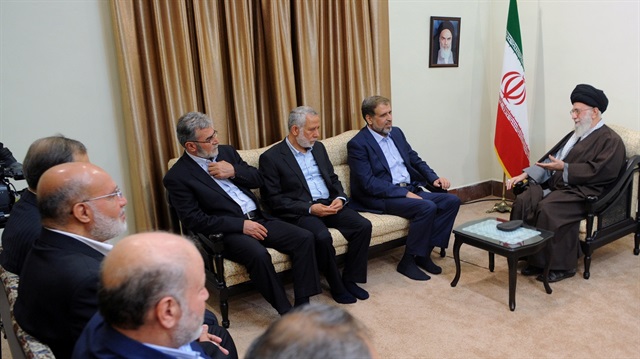
Karim Sadjadpour, an Iran expert at the Carnegie Endowment for International Peace think tank, said the strategy to economically strangle Iran and stoke public discontent with the leadership aimed to produce one of two outcomes.
Karim Sadjadpour, an Iran expert at the Carnegie Endowment for International Peace think tank, said the strategy to economically strangle Iran and stoke public discontent with the leadership aimed to produce one of two outcomes.
"Outcome one is capitulation, forcing Iran to further curtail not only its nuclear program but also its regional ambitions," Sadjadpour said. "Outcome two is the implosion of the Islamic Republic."
But some U.S. officials and other experts cautioned that by fueling turmoil in Iran, the U.S. administration could foster greater authoritarian rule and a more aggressive foreign policy, raising the threat of a U.S.-Iran confrontation.
Washington has long called Iran the world's leading "state sponsor of terrorism" because Tehran arms and funds proxy militant groups like Lebanese Hezbollah. Iranian leaders urge the destruction of the United States and Israel, and Iranian proxies have killed hundreds of U.S. soldiers and diplomats since the Islamic Revolution.
That record provided previous administrations with ample material for waging their own public relations campaigns against Tehran, including trying to communicate directly with the Iranian people.
President George W. Bush's administration established Radio Farda, a U.S.-funded broadcaster that beams into Iran what it says is "objective and accurate news and information to counter state censorship and ideology-based media coverage." The Obama administration launched a Farsi Twitter account - @USAdarFarsi – in 2011.




